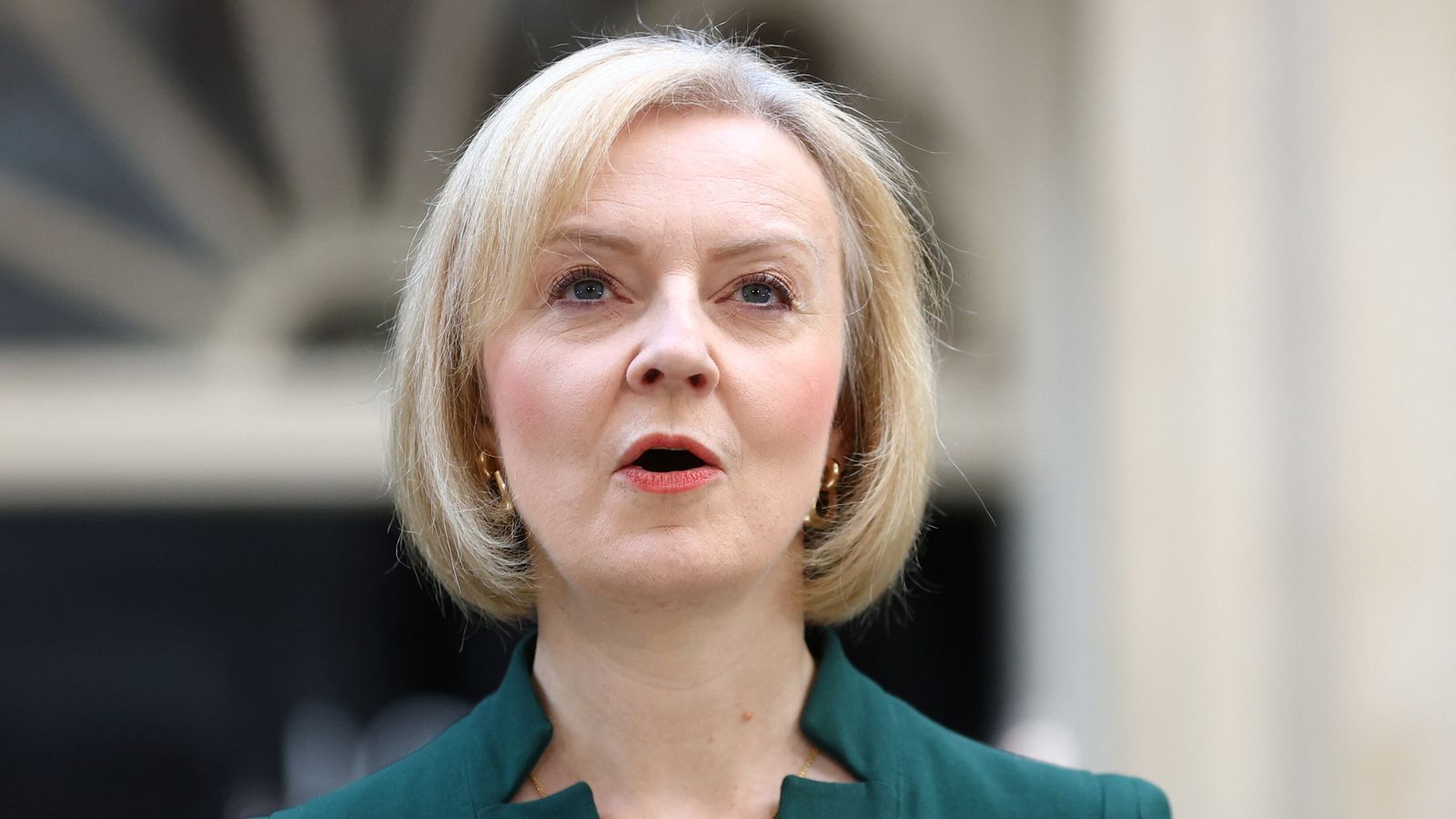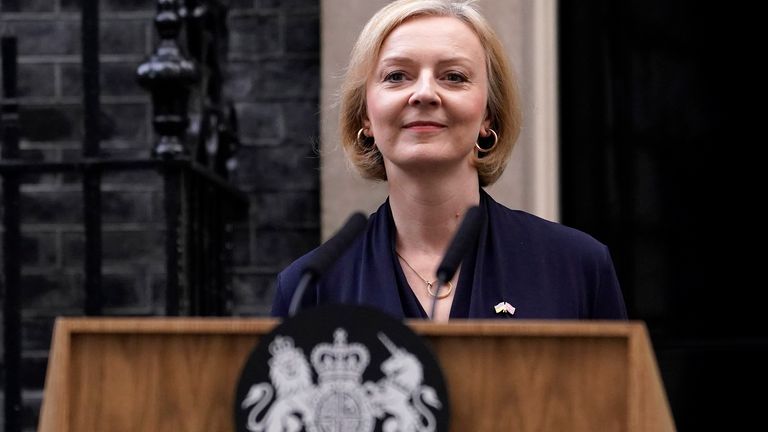A new economic organisation, set up by Liz Truss, will launch on Wednesday, with a report claiming the average British person is £10,000 worse off than people in the US.
The Growth Commission, made up of economists brought together by the former prime minister, said its work would focus on highlighting the issue of low growth – echoing Ms Truss’ priorities during her short-lived premiership.
In its first piece of work, the group will claim “consistent growth levels” of 3% by 2040 are achievable in the UK, and would lead to £35,000-worth of higher spending per household.
Politics live: Migration bill will ‘consign more people to slavery’
The Commission does not outline policy suggestions of how to reach this figure, but said it would provide further analysis around large scale fiscal events.
Co-chairman Douglas Williams said he hoped the report would kick off a “fruitful, non-partisan exploration” of why there is a problem with low growth and “what governments around the world can do to reinvigorate our economies and improve lives”.
The report says UK GDP per capita is currently £36,568, compared to £52,996 in the US.
“The average American is earning a third more than the average Briton, roughly a £10,000 gap in annual spending power between the two, which represents a difference of £24,000 between the average household in the UK and the US,” it adds.
“If over the next two decades the UK economy could achieve annual GDP per capita growth of 3% – as was achieved in the UK in 1950s and is currently being achieved in a country like Poland – the economy would be 65% bigger by 2040.
“This translates in today’s money to nearly £15,000 more for each person to spend each year; and additional tax revenues of £670bn.”
The group’s second co-chairman, Shanker Singham, claimed opportunities for growth in the UK were “abundant and increasing”.
He added: “Failure to act will see us miss out on the opportunities presented by huge technological advances that we have seen especially over the last 20 years.”
But with the former PM’s reputation in Downing Street to contend with, the Commission’s suggestions could come in for criticism.
Ms Truss took over in Number 10 back in September, with a promise to take on the so-called “anti-growth coalition” both in parliament and Whitehall.
But following a number of un-costed tax cuts outlined in her mini-budget, the markets were sent into a spiral, damaging both the economy and her credentials.
She attempted to save her premiership by sacking her chancellor, Kwasi Kwarteng, and bringing in Jeremy Hunt to reverse the policies.
But Ms Truss lost the support of the Conservative Party and resigned after just 49 days in power.
Mr Hunt remained as chancellor in Rishi Sunak’s cabinet and the pair have taken a different approach, focusing on cutting inflation rather than taxes.
However, despite promises to halve the figure before the year is out, the number has remained stubborn and the Bank of England has continued to increase interest rates as a result.
And figures released on Tuesday showed fixed mortgage rates were now higher than in the fall-out from the mini-budget.

